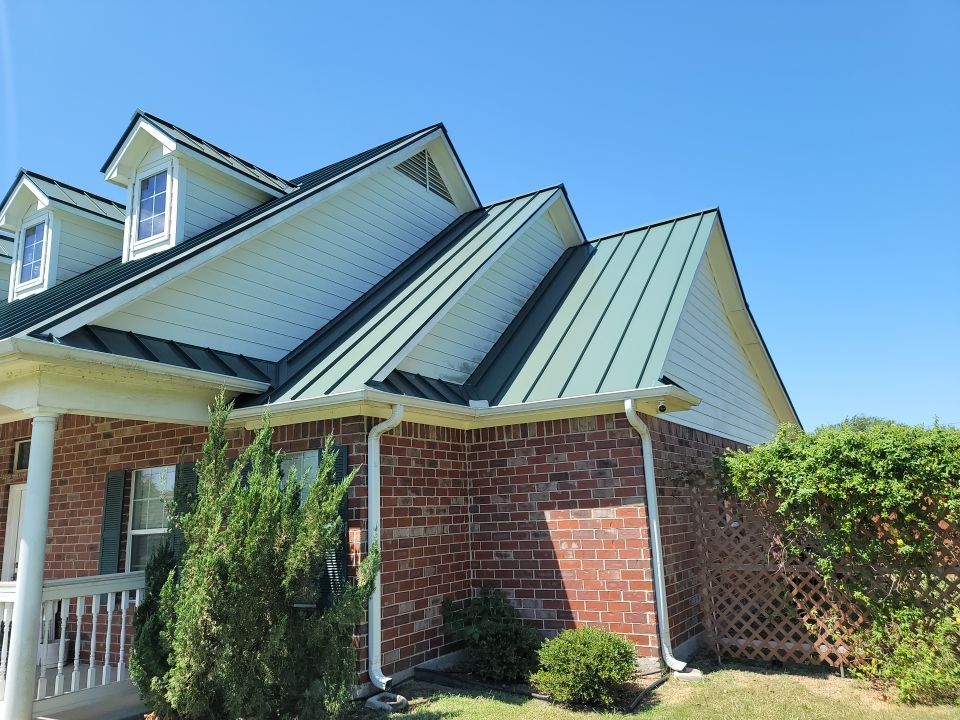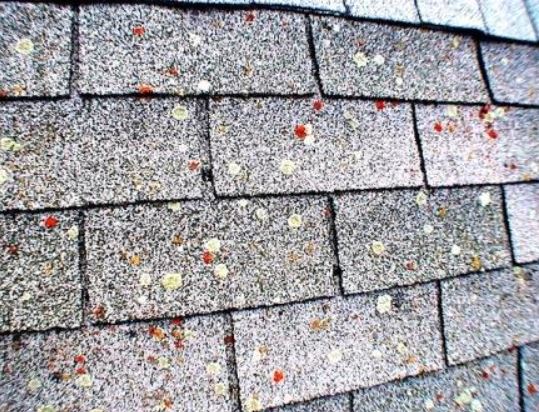Trusted, Certified Roofing Solutions for Your Home
Welcome to Roof Experts’ comprehensive guide on certified roofing solutions that combine trusted expertise with quality materials and professional workmanship. This article explains certified roofing services, how to choose the right roofing materials, and discusses quality installation, proper maintenance, warranties, and professional support. Homeowners, contractors, and business owners alike will benefit from this step‐by‐step resource on roofing solutions that uphold safety, durability, and aesthetic appeal.
Naturally, we hope you choose Roof Experts for all of your roofing needs but we are also happy to arm you with the information we believe every home or business owner needs.

Roof Experts believes in doing the job right, whether we’re working or volunteering.
Who to Trust, How to Find Them, and Licenses to Look For
Explore Trusted Certified Roofing Solutions for Your Home
Our roofing solutions provide homeowners and businesses with peace of mind. Certified roofing services ensure quality workmanship that complies with regulation and technical standards while delivering excellent customer service. Certified roofers complete rigorous training and obtain necessary certifications from industry leaders such as CertainTeed and Owens Corning. They use leading materials—such as asphalt shingles, metal, or cedar shake—to meet durability and safety standards.
Understand the Importance of Certified Roofing Services
Certified roofing services ensure compliance with local building regulations and national standards, which minimizes leaks and structural issues that could lead to costly repairs. Hiring certified roofers means relying on industry-recognized standards that improve roof lifespan, reduce insurance risks, and guarantee professional project execution. Their proven track record has shown roof lifespans can improve by up to 25% compared to non-certified alternatives.
Identify Reliable Roofing Contractors Near You
Finding reliable roofing contractors requires verifying credentials, experience, and customer satisfaction ratings. Certified roofers are more likely to complete projects on time and reduce unforeseen repair costs. They maintain proper licenses, insurance, and local certifications. Checking reviews, ratings, and recommendations from previous customers further ensures their trustworthiness.
Verify Certifications and License of Roofing Experts
Before beginning any roofing project, it is critical to verify the certifications and licenses of the roofing experts. Certified roofers provide documented training and recognized certifications from manufacturers like GAF or Owens Corning. Up-to-date licensing and adherence to current building codes further assure quality workmanship and overall project reliability.
Request Detailed Roofing Estimates From Contractors
Detailed roofing estimates clarify project costs, timelines, and materials used. Homeowners should request itemized estimates covering labor, materials, permits, and extra services such as gutter cleaning or skylight reinstallation. These detailed estimates enable comparisons based on value rather than just cost, ensuring transparency and accountability from roofing contractors.
Evaluate Customer Reviews for Quality Assurance
Customer reviews offer valuable insight into a contractor’s workmanship, punctuality, and post-project support. High ratings and specific testimonials about project management, licensed credentials, and warranty fulfillment indicate a contractor’s reliability. Reading reviews helps ensure that you select a contractor with proven commitment to quality.

Metal roofing can be a great choice for homes or businesses.
Consider Your Roofing Options and the Benefits of Each
Learn About Various Roofing Types and Materials
Selecting the best roofing type is essential for protecting your home. Asphalt shingles balance cost-effectiveness and durability, metal roofs are renowned for longevity and weather resistance, and cedar shakes offer natural aesthetics though they require more maintenance. The choice depends on performance factors and design preferences to best match practical requirements and personal taste.
Choose the Right Roofing Materials for Your Home
The right roofing materials not only protect your home but also enhance its value and appearance. Consider durability, maintenance needs, cost-effectiveness, energy efficiency, and aesthetic appeal when making your decision.
Assess the Benefits of Asphalt Shingles for Durability
Asphalt shingles are popular for their durability, versatility, and affordability. They protect effectively against water and extreme weather conditions, and with proper maintenance, high-quality options can last 20-30 years. Their wide range of styles and colors makes them a balanced solution for homeowners looking for long-term performance.
Discover the Strength of Metal Roofing Options
Metal roofs offer exceptional strength and longevity, often lasting between 40 and 70 years. Metals like aluminum, steel, and copper resist harsh weather, heavy snowfall, and fire. Additionally, metal roofs reflect solar energy, which can lower cooling costs, and their modern design works well with various architectural styles.
Analyze the Appeal of Cedar Shake Roofs
Cedar shake roofs provide natural beauty and unique texture, adding warmth and character. Cedar is a natural insulator, helping regulate indoor temperatures; however, these roofs require more upkeep due to susceptibility to weathering and rot. Modern treatments have improved their longevity, making them a sustainable option for those seeking a distinctive look.
Consider Energy-Efficient Roofing Solutions
Energy-efficient roofing options are increasingly popular as homeowners aim to lower energy bills and reduce environmental impact. Roofing solutions featuring reflective coatings, improved insulation, or integrated solar panels—like cool roofs or photovoltaic shingles—help reduce cooling costs and sometimes even generate electricity, offering both performance and sustainability benefits.
Take Note of Your Individual Factors
Recognize Factors Influencing Roof Lifespan
A roof’s lifespan depends on material quality, weather conditions, installation practices, and regular maintenance. UV exposure, precipitation, wind speed, and thermal expansion accelerate roof wear. Proper ventilation and upkeep ensure that a well-installed roof with quality materials lasts longer and provides continuous protection.
Compare Cost-Effectiveness of Different Roofing Types
When comparing roofing options, consider both the initial installation cost and long-term maintenance expenses. While asphalt shingles may be less costly upfront, they might need replacing sooner than more expensive metal roofs with longer lifespans. Similarly, cedar shakes can incur higher maintenance costs. Weigh total costs over time along with expected lifespan and aesthetics to determine the best overall value.
Make Sure the Proper Protocols Are in Place
Implement Quality Installation for Long-Lasting Roofing
Quality installation is as critical as selecting high-grade materials. Proper installation practices ensure that your roof performs reliably and withstands environmental stress. The following practices outline key steps in successful roofing installation.
Follow Proper Roofing Installation Guidelines
Adhering to manufacturer instructions and local building codes is essential. This means correctly aligning underlayment, installing drip edges, and using proper nailing patterns for shingles or metal panels. A standardized installation process minimizes the risk of premature roof failure.
Ensure Safe Practices During Roofing Projects
Safety should never be compromised. Contractors must use safety equipment such as harnesses, guardrails, and proper personal protective equipment (PPE) during installation. Following OSHA standards protects workers and promotes efficient, high-quality project execution.
Establish a Timeline for the Roofing Process
A clear project timeline is necessary to coordinate material delivery, labor, and inspections. Efficient planning ensures that all phases are completed on schedule and that seasonal weather conditions do not delay installation.

Take notes, take pictures, and get copies of appropriate documents.
Document the Process to the Best of Your Ability
Conduct Regular Inspections During Installation
Regular inspections throughout the installation help detect any issues early. Supervisors monitor proper alignment, secure fastening, and overall compatibility with the roofing material. This proactive quality control prevents future costly repairs.
Check for Building Codes and Local Regulations
Ensuring your roofing project adheres to building codes and local regulations is critical. These codes might include requirements for wind and fire resistance and energy efficiency standards. Compliance avoids fines, delays, and ensures your roof meets all safety benchmarks.
Document the Installation for Future Reference
Keeping detailed records of the installation—including photographs, receipts, and a summary of steps performed—is vital. This documentation can assist with future maintenance, repairs, warranty claims, and even boost resale value by proving quality workmanship.
Vital Steps of Roof Maintenance
Maintain Your Roof for Optimal Performance
Regular roof maintenance is key to extending its life and performance. Timely upkeep prevents small issues from evolving into major problems, ensuring continuous protection for your home.
Schedule Periodic Roof Inspections for Damage
Have your roof inspected at least once or twice a year, ideally before and after extreme weather conditions. Professional inspectors can spot issues like loose shingles, cracks, or water pooling early, allowing for prompt repairs that prevent further damage.
Clean Gutters and Downspouts Regularly
Keeping gutters and downspouts clear ensures proper water drainage and prevents roof damage. Clogged gutters can lead to leaks or structural issues. It is advisable to clean them at least twice a year, or more frequently if your property is surrounded by trees.
Address Small Repairs Promptly to Prevent Issues
Timely repair of minor damage—such as damaged shingles or loose flashing—prevents escalation into costly repairs. Prompt fixes improve energy efficiency by avoiding drafts and moisture buildup while maintaining the roof’s overall appearance.
Implement Preventive Measures Against Leaks
Use high-quality sealants, proper flashing, and insulation to prevent leaks. Regularly inspect vulnerable areas around chimneys, skylights, and vents, and reapply sealant as needed. Such preventive maintenance reduces the likelihood of leaks that could lead to extensive damage.
Protect Your Roof From Debris and Tree Branches
Remove debris like leaves, branches, and ice from your roof to prevent damage or drainage blockages. Trimming nearby trees can further reduce the risk of physical damage from falling objects and help maintain roof integrity.
Keep Record of Maintenance Activities and Repairs
Maintain a log of all inspections, repairs, and maintenance activities. This record helps track your roof’s condition over time and is useful for insurance claims or when selling your property by demonstrating diligent upkeep.
Know the Fine Print
Understand Warranties for Roofing Solutions
Warranties protect your roofing investment by covering defects and failures. Understanding the terms of these warranties helps you make informed decisions and ensures you receive proper coverage.
Differentiate Between Manufacturer and Labor Warranties
Manufacturer warranties cover defects in roofing materials for periods typically ranging from 20 to 50 years, while labor warranties cover installation workmanship for a shorter term. Knowing the differences helps you understand which parts of your roof are protected.
Evaluate Coverage Options for Different Roofing Types
Warranty terms vary with roofing types. Metal roofs may have warranties spanning several decades, whereas asphalt shingles might carry shorter warranties due to their inherent lifespan differences. Evaluating these options against maintenance requirements enables you to choose a solution that offers long-term reliability.
Clarify Warranty Terms Before Hiring Contractors
Ensure that warranty details are clearly included in contracts. Written estimates should spell out what is covered, the duration, and the process for filing claims. Clear communication about warranty terms protects you from unexpected expenses later.
Review Claims Process for Warranty Coverage
Before starting your project, review how warranty claims are handled. Understand the documentation, timelines, and steps required to file a claim. A straightforward claims process from a reputable manufacturer and contractor offers additional peace of mind.
Understand Factors That Can Void Your Warranty
Improper installation, poor maintenance, or unauthorized repairs may void your warranty. It is essential to follow manufacturer recommendations and contractor guidelines strictly to avoid any loss of coverage.
Assess How Warranties Affect Home Value
Warranties can enhance your home’s resale value by reassuring potential buyers of ongoing roof protection. Properties with transferable warranties are often seen as less risky investments, improving marketability.

Small dots may seem like an easy problem, but they are signs of serious issues.
Knowing When to Get a Pro
Get Professional Help When Needed for Your Roof
Even if you plan a DIY approach, there are times when professional roofing services become indispensable. Expert intervention can save time, reduce costs, and prevent further damage in complex situations.
Determine When to Call in Expert Roofing Services
Call professionals when faced with significant damage, extensive leaks, or structural issues. Their advanced diagnostic tools and techniques can identify hidden problems, ensuring proper and lasting repairs.
Search for Certified Roofing Contractors in Your Area
Look for certified roofing contractors by verifying credentials, reviews, and licensing information. Use trusted platforms and professional directories to find contractors who maintain current training and adhere to industry standards.
Review Client Testimonials for Roofing Professionals
Reading client testimonials provides insights into project timelines, workmanship quality, and post-installation support. Positive, detailed feedback confirms that a contractor is reliable and committed to quality.
Get Multiple Quotes Before Making a Decision
Obtain several quotes to compare pricing, timelines, and material options. Multiple estimates not only promote competitive pricing but also help you understand market standards, ensuring you receive value for your investment.
Understand the Importance of Written Estimates
Written estimates offer a clear breakdown of costs, including materials, labor, and extras. This documentation avoids unexpected expenses and sets a reference point for dispute resolution if needed.
Assess Follow-Up and Customer Support Services
Post-installation support is important for long-term roof performance. A contractor offering routine inspections, emergency repairs, and ongoing customer support can help maintain your roof’s integrity over time.
Frequently Asked Questions
Q: How often should I have my roof inspected by a professional?
A: Roof inspections should be conducted at least once a year, ideally before and after severe weather seasons to catch issues early.
Q: What factors influence the lifespan of a roof?
A: The lifespan is influenced by the roofing material, quality of installation, local climate, maintenance practices, and adherence to safety standards.
Q: Can I save money by choosing a less expensive roofing material?
A: Although cheaper materials may lower upfront costs, they may lead to higher maintenance or replacement expenses over time. Balancing initial cost with durability and warranty coverage is key.
Q: What certifications should I look for when hiring a roofing contractor?
A: Look for certifications from reputable manufacturers such as CertainTeed or Owens Corning, along with proper state licensing, insurance, and positive customer reviews.
Q: How do energy-efficient roofing options benefit homeowners?
A: They reduce cooling costs by reflecting solar radiation and may include insulation or solar panel systems, thus lowering energy expenses and supporting sustainability.
Q: Is professional documentation of the roofing installation necessary?
A: Yes, detailed documentation, including photos and receipts, is crucial for warranty claims, future maintenance, and verifying workmanship quality.
Q: What are the advantages of metal roofing over asphalt shingles?
A: Metal roofs offer superior durability, a longer lifespan, enhanced energy efficiency, and better resistance to extreme weather, although their initial cost is higher.
Q: When does it make sense to call professional roofing services instead of doing repairs yourself?
A: Professional services are advised for extensive damage, complex installations, or when a precise diagnostic is needed to prevent further harm.
Final Thoughts
In summary, high-quality roofing solutions depend on certified services, the right material selection, quality installation, and diligent maintenance. Hiring certified roofing contractors ensures that your roof is safe, durable, and long-lasting. By choosing appropriate materials, following correct installation methods, and maintaining regular inspections, you can extend the lifespan of your roof and increase your home’s value. Ultimately, trusted professional support and clear warranty terms provide peace of mind and a secure investment in your property.
Don’t forget to follow us on Instagram where we post ongoing projects, household tips and tricks, and general tomfoolery!
View this profile on Instagram


